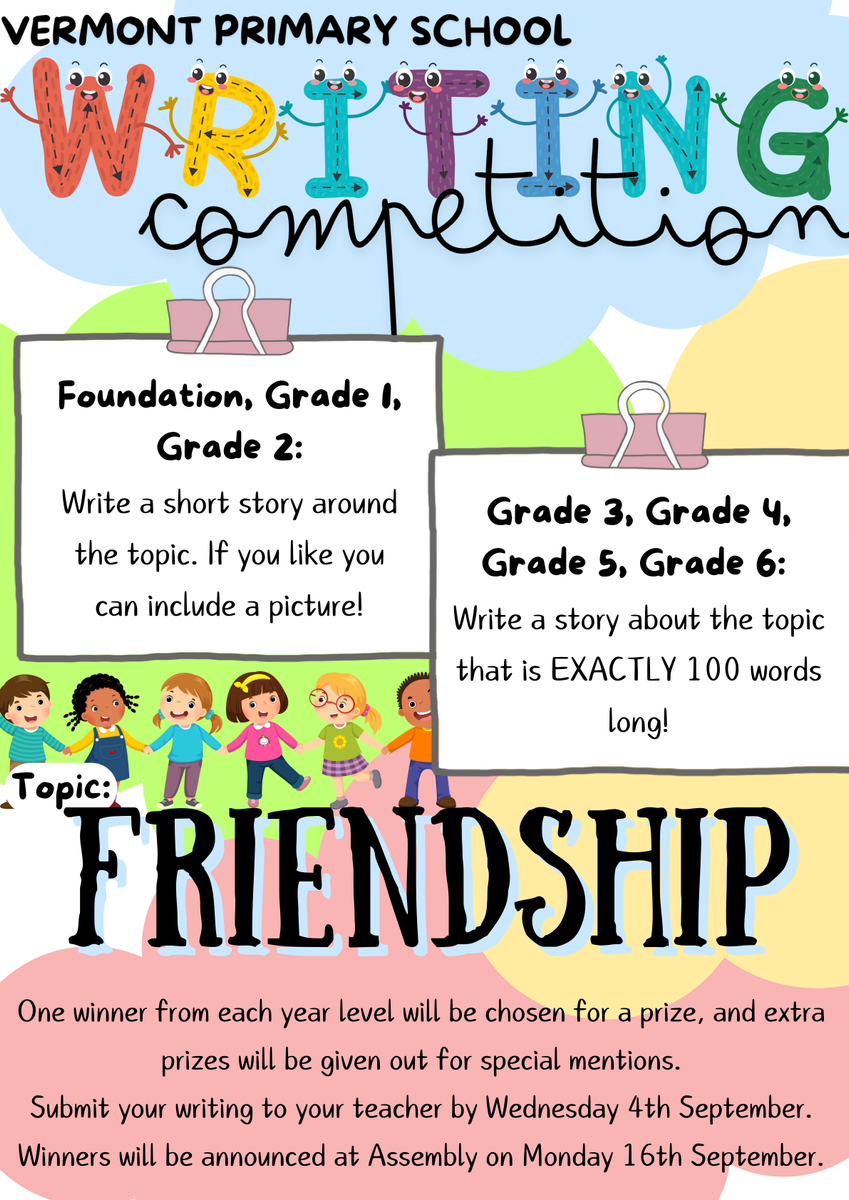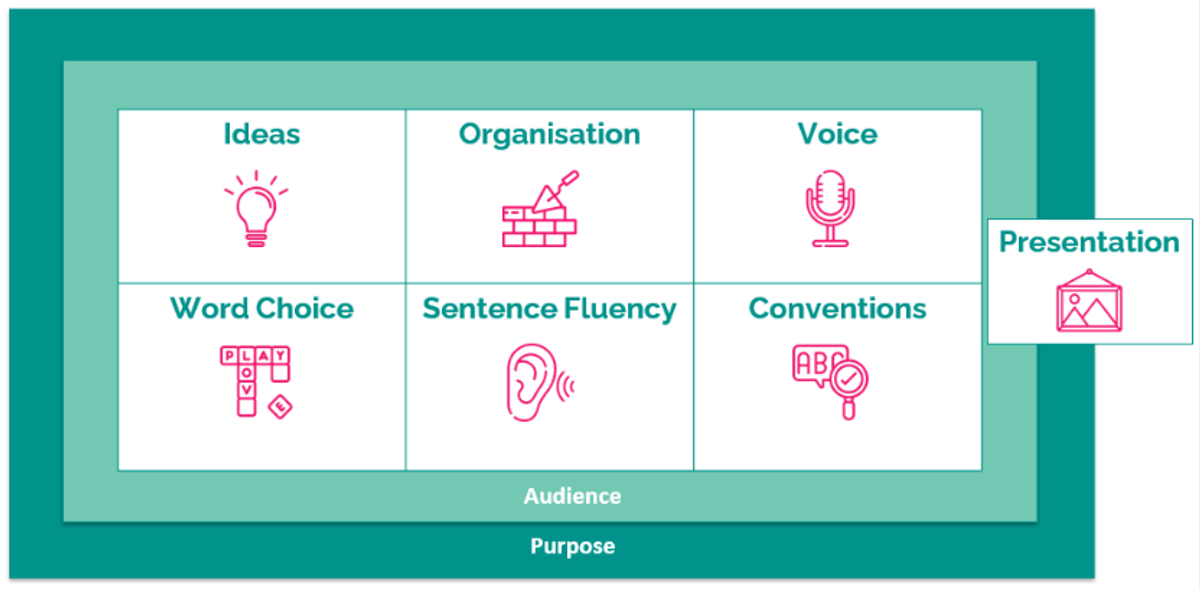Literacy

Vermont Primary School Writing Competition
A huge congratulations to all the students who entered the Vermont Primary Writing Competition! It's wonderful to see so many students dedicating their personal time to writing.
We’ve had an impressive number of entries, and after reading just a few, it’s clear that the standard is incredibly high. The students have put in a tremendous amount of effort, and it truly shows.
Our teachers will now begin the judging process, and the winners will be announced at a future assembly.
MS Readathon
Congratulations to all the students who participated in the MS Readathon! Although the competition has ended, students can still receive donations. The Vermont Primary team has already raised nearly $500, and with additional donations, it would be fantastic to reach this milestone. Our top fundraisers will be recognised at an upcoming assembly.
Understanding the Organisation Trait in Writing
At Vermont Primary School, one of the key components we emphasise in our writing curriculum is the Organisation trait. This trait is essential for helping students structure their ideas clearly and logically, making their writing easier to follow and more effective.
What Is the Organisation Trait?
The Organisation trait refers to the way a piece of writing is structured. It's about how the writer arranges ideas, information, and events so that they make sense to the reader. A well-organised piece of writing has a clear beginning, middle, and end, with ideas flowing smoothly from one to the next.
Good organisation helps to guide the reader through the writing, ensuring they can easily follow the writer's thoughts and understand the message. It involves thoughtful use of introductions, transitions, sequencing, and conclusions.
How We Develop Organisation in the Classroom
In our classrooms, we focus on helping students develop their organisational skills in several ways:
Planning and Outlining: Before students begin writing, we encourage them to plan out their ideas. This might involve brainstorming, creating an outline, or using graphic organisers to map out the structure of their piece.
Clear Beginnings and Endings: We teach students the importance of strong introductions that grab the reader's attention and clear conclusions that wrap up their thoughts. These bookends provide a sense of completeness to their writing.
Logical Sequencing: Students learn to arrange their ideas in a logical order, whether they're telling a story, explaining a process, or making an argument. We practise using transition words and phrases to help connect ideas smoothly.
Paragraphing: Organising writing into paragraphs helps break up information into manageable chunks. We emphasise the importance of starting a new paragraph for each new idea or topic, helping to maintain clarity and focus.
How Parents Can Support Organisation at Home
Parents can play an essential role in reinforcing the skills we teach at school. Here are some ways you can help your child develop their organisational skills in writing at home:
Encourage Planning: Before your child begins writing, ask them to take a few minutes to plan out what they want to say. They can jot down ideas, create a simple outline, or even draw a mind map to visualise the structure of their writing. Discuss the importance of having a clear plan before diving into writing.
Discuss Structure in Everyday Writing: When you encounter writing in everyday life, such as in books, magazines, or even instructions for a game, discuss how the information is organised. Ask your child questions like, "How did the author introduce this topic?" or "What makes the conclusion effective?"
Practise Writing with Clear Beginnings, Middles, and Endings: Provide your child with opportunities to write short stories, letters, or reports at home. Encourage them to focus on creating a strong opening, a well-organised middle section, and a clear conclusion. Praise their efforts in structuring their writing and making it easy to follow.
Use Transition Words and Phrases: Help your child experiment with different transition words and phrases to connect their ideas smoothly. Phrases like "first," "next," "in addition," and "finally" can help guide the reader through their writing.
Break It Down: If your child is working on a longer writing task, help them break it down into smaller sections. This can make the writing process feel less overwhelming and help them focus on organising each part effectively.
Fortnightly Segments
Writing Challenge
If your child enjoys their writing and is keen to write for enjoyment at home, below is a prompt that you could ask your child to write about.
If you could invent anything, what would it be? How could it benefit people?
Comprehension Question
This fortnight’s questions are:
- How does this book relate to your life or the world around you?
- What is the author's purpose? Why do you think he or she wrote the book?



